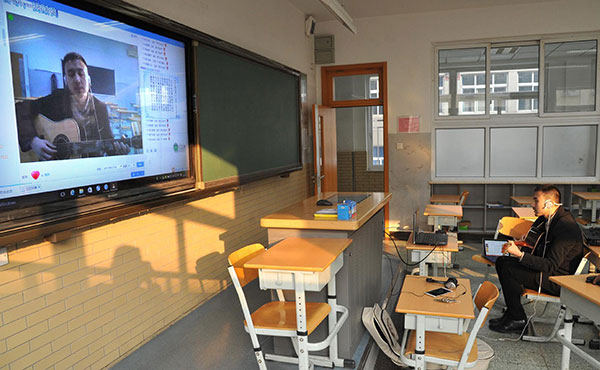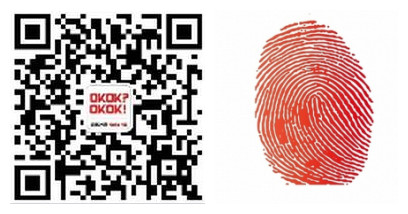 |
|
A literature teacher plays guitar to help his students better understand the rhythm of poems through an online education system at Jingshan School in Beijing on Monday. [Lin Hui / for China Daily]
|
Beijing's two recent red alerts for air pollution led to the suspension of classes at primary and middle schools in the capital, but online education platforms experienced a boom.
According to 17zuoye.com, an Internet-based K12 homework service, the number of newly registered users on Dec 8 was almost three times as many as the day before, with 3,000 teachers and 160,000 students in Beijing assigning and doing homework there.
Users of Homework Box, a mobile app that has similar functions to 17zuoye.com, hit a new high in the number of questions downloaded and worked on by students from Dec 7 to 9, when Beijing issued its first red alert for air pollution and primary and middle schools of the capital suspended classes for three days.
TAL Education Group, a K-12 after-school tutoring service, which opened some of its K12 online courses to students free of charge during red alerts, had more than 20,000 students in Beijing studying their online courses during the three days of suspended classes after the first red alert - 50 percent more than the average on ordinary days.
The top subjects studied were fifth-and seventh-grade math and eighth-grade physics, according to the TAL Education Group.
Wang Haifeng, a Beijing resident whose son is a fourth-grader at Xicheng district's Wulutong Primary School, said she worried at first about how the online courses would affect her son's learning, but after several days' observation she feels more at ease.
"It's convenient for children to study and do homework online, and this approach really appeals to children," she said. "It's not a bad choice to study this way at home on days with heavy smog, but parents have to put more effort into supervising their children and helping them use the Internet properly."
Lyu Senlin, E-learning Research Institute's founder and chief researcher, said incidents like the outbreak of Severe Acute Respiratory Syndrome in 2003 and the suspension of classes on heavily polluted days proved to be good opportunities for the development of online education.
"But many schools still treat online education only as a supplement or a second choice on temporary, special occasions," Lyu said. "Schools and teachers need to become more open, to embrace the changes the Internet brings to daily teaching, instead of just on special occasions."
By Zhao Xinying (China Daily)
Using WeChat? Scan QR Code or Press the Fingerprint Below ↓
--- (Or ADD WeChat ID: OKOKOKOKnet)
